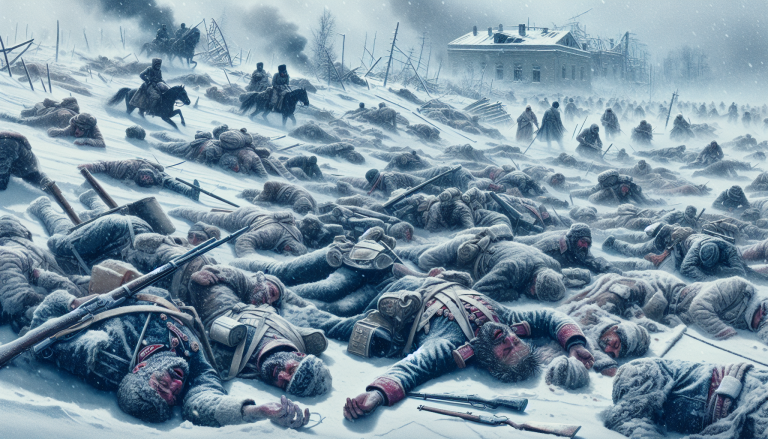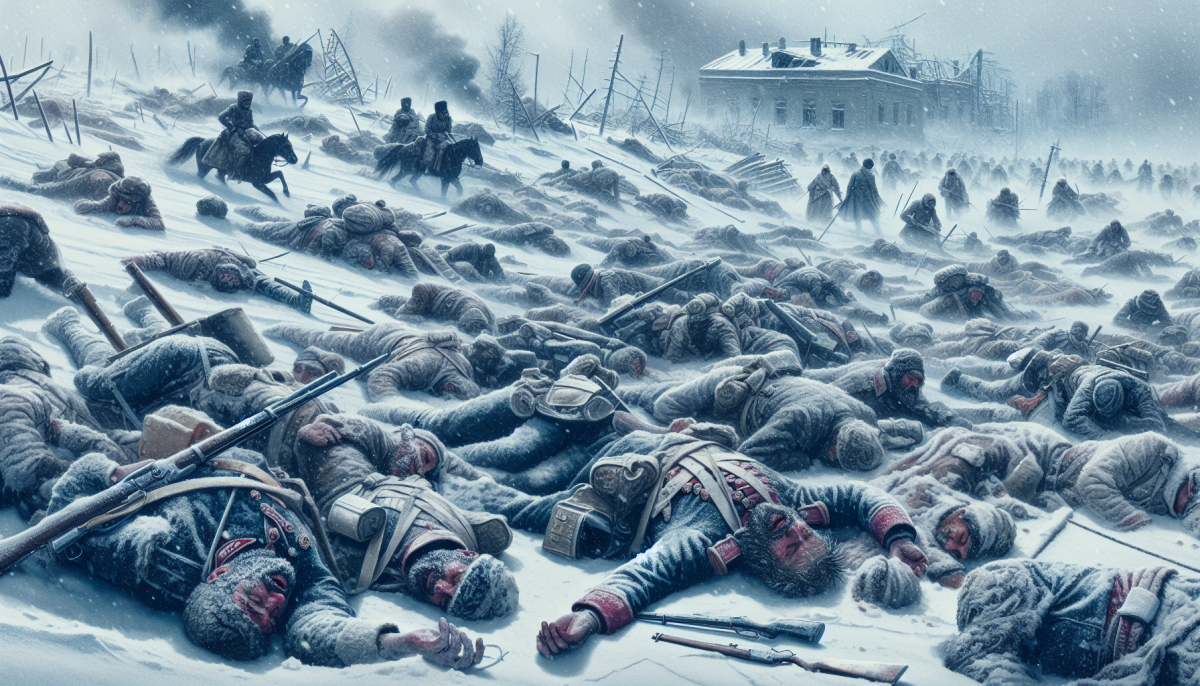The Napoleonic Folly: How Beating a Dead Horse Led to the Downfall of an Empire
In the annals of history, few military campaigns have been as comically doomed as Napoleon’s ill-fated invasion of Russia in 1812. This epic tale of hubris and folly has long been the subject of ridicule and satire, with the phrase “beating a dead horse” serving as the perfect metaphor for the French emperor’s futile efforts to conquer the frozen expanse of the Motherland.
It all began with Napoleon’s grand vision of creating a pan-European empire under his rule. Having already subjugated much of the continent, the diminutive Corsican set his sights on the vast Russian Empire, determined to bring the mighty Tsar Alexander I to his knees. Little did he know that he was about to embark on one of the most disastrous military campaigns in history.
The March to Moscow: A Colossal Blunder
As Napoleon’s Grande Armée of over 600,000 men marched eastward, confident in their ability to swiftly defeat the Russians, they soon found themselves confronted with a formidable adversary: the unforgiving Russian winter. The French troops, accustomed to the temperate climes of Western Europe, were woefully unprepared for the bitter cold and harsh conditions of the Russian countryside.

“We were like flies caught in a spider’s web,” lamented one French soldier, “frozen solid and unable to move.”
Undeterred, Napoleon pressed on, driven by his unwavering belief in his own military genius. He ordered his troops to march on Moscow, confident that the capture of the Russian capital would bring the Tsar to the negotiating table. But as the French drew closer to their objective, they encountered a startling development: the Russians had abandoned Moscow, leaving the city in flames.
The Retreat from Moscow: A Comedy of Errors
With no clear path to victory, Napoleon was forced to order a retreat. What followed was a veritable comedy of errors, as the French army found itself beset by freezing temperatures, dwindling supplies, and a relentless Russian pursuit.
“It was like watching a herd of elephants trying to dance on a frozen lake,” quipped one Russian observer, “the French were so clumsy and ill-suited to the conditions.”
As the French soldiers trudged through the snow, their once-proud uniforms now in tatters, they were easy prey for the Russian Cossacks, who picked them off with devastating precision. Horses collapsed from exhaustion, and the men resorted to eating their own mounts to stave off starvation.
“We were like a bunch of penguins trying to outrun a pack of wolves,” recalled one French officer, “it was utterly hopeless.”
The Epitaph of an Empire
By the time the remnants of the Grande Armée finally reached the safety of the French borders, the once-mighty force had been reduced to a shadow of its former self. Of the 600,000 men who had set out on the campaign, only a fraction – around 30,000 – survived the ordeal.
The disastrous Russian campaign marked the beginning of the end for Napoleon’s empire. The French emperor, who had been hailed as an unstoppable military genius, was now the subject of endless ridicule and satire.
“It was like watching a child try to blow out a forest fire with a toy water pistol,” quipped one British cartoonist, “Napoleon thought he could just march in and conquer the Russians, but he ended up beating a dead horse all the way back to Paris.”
The phrase “beating a dead horse” perfectly encapsulates the futility of Napoleon’s efforts in Russia. Despite his relentless determination and the vast resources at his disposal, the French emperor was unable to overcome the formidable obstacles that stood in his way. His campaign was doomed from the outset, and his stubborn refusal to admit defeat only compounded the tragedy.
Today, the Napoleonic invasion of Russia stands as a cautionary tale for would-be conquerors, a stark reminder that even the mightiest of empires can crumble in the face of nature’s unforgiving forces. And for those of us who delight in the quirks and foibles of human history, it serves as a delightfully absurd example of the perils of hubris and the power of satire to immortalize the most epic of failures.
